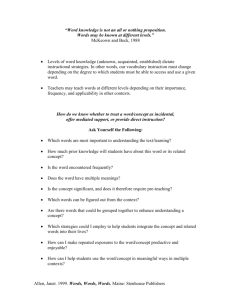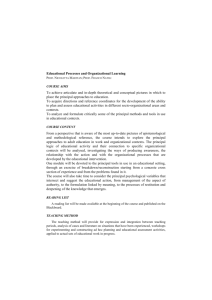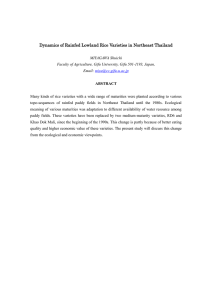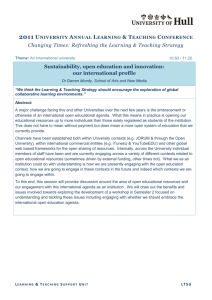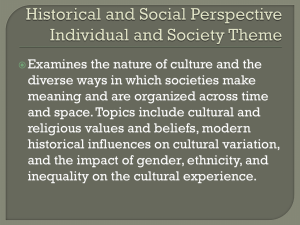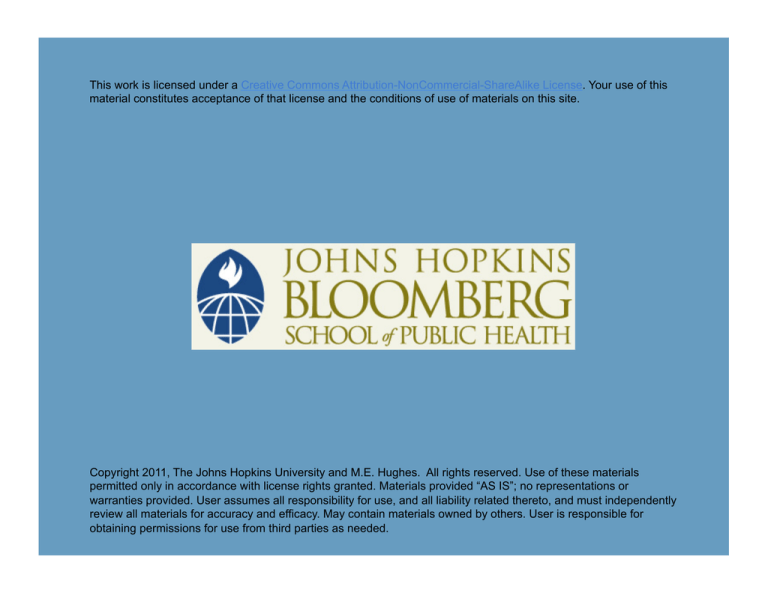
This work is licensed under a Creative Commons Attribution-NonCommercial-ShareAlike License. Your use of this
material constitutes acceptance of that license and the conditions of use of materials on this site.
Copyright 2011, The Johns Hopkins University and M.E. Hughes. All rights reserved. Use of these materials
permitted only in accordance with license rights granted. Materials provided “AS IS”; no representations or
warranties provided. User assumes all responsibility for use, and all liability related thereto, and must independently
review all materials for accuracy and efficacy. May contain materials owned by others. User is responsible for
obtaining permissions for use from third parties as needed.
Themes, Methodology, and Using a Life Course
Perspective in Public Health
M.E. Hughes, PhD, MA
Johns Hopkins University
Section A
Themes Over the Life Course, Part 1
“Types” of Themes
Individual differences
Varieties of contexts
Time patterns
Cross-level processes
4
Individual Differences: Agency
Individual development shaped by both opportunity structure …
- Educational system
- Gender role norms
- Availability of health care
And individual agency: choices, seeking opportunity, active
responses to situations
- Planfulness
- Self-efficacy
5
Individual Differences: Resilience
Resilience: positive adaptation despite adversity
- Why do some “at-risk” individuals do well?
- Important information for programs and policy—promote
resilience, don’t wait to fix problems
6
Varieties of Contexts: Time
People’s lives are shaped by the historical period in which they live
7
Varieties of Contexts: Time
And their cohort—the year in which they were born
- Determines age at which they experience a given historical
event
- “Generations”: Baby Boomers, Gen X, Greatest Generation
8
Age, Period, and Cohort
9
Varieties of Contexts: Place and Culture
Place (nation state, region, neighborhood) may matter in its own
right, not just as an indicator of culture
Culture as a toolbox—which we ignore at our peril
10
Varieties of Contexts: Linked Lives
People’s lives are affected by the lives of others in their social
network, especially their families
- Effects of unemployment of father on kids via family dynamics
- Parent’s ill health and need for care affects adult child
- Context of health behavior
11
Varieties of Contexts: Social Inequality
Social inequality reflects social hierarchies, not individual
attainment
- Social groups ranked by dominance
- Groups definitions may vary
Race/ethnicity
Culture
Income
- Characteristic of societies
12
Varieties of Contexts: Social Inequality
Inequality as “fundamental cause” of disease (and health)
13

